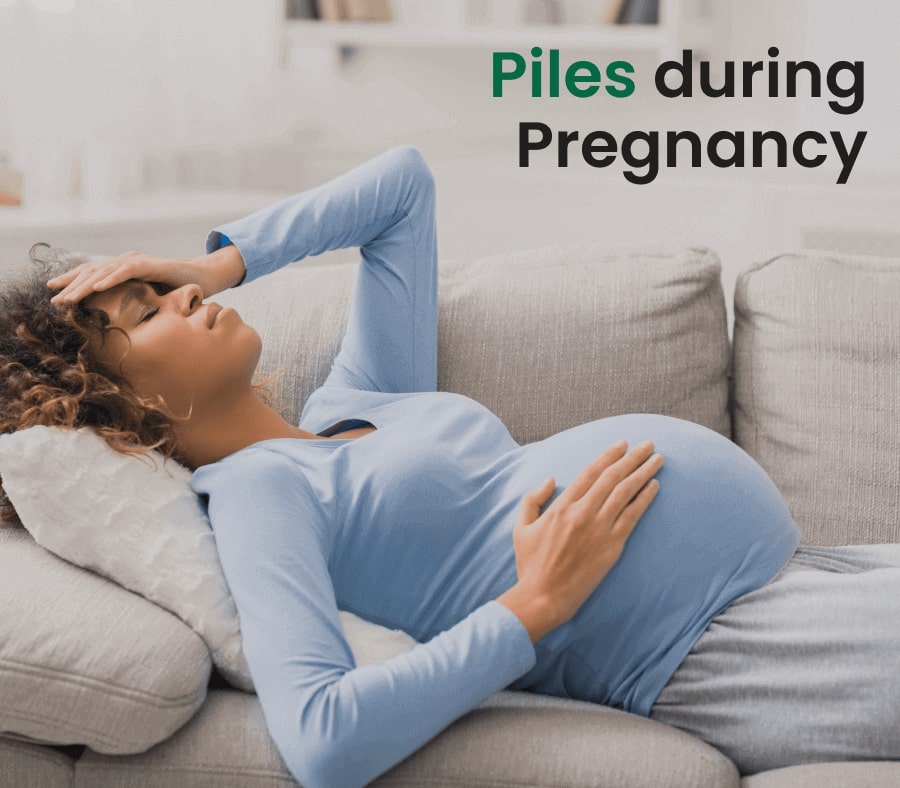
What are Piles?
Piles, also called hemorrhoids are swollen and inflamed veins that develop in the lowest part of your rectum and anus. The walls of these veins can stretch and cause intense discomfort and irritation especially when you strain to pass stools.
What causes piles?
There are certain factors that increase the risk of developing piles:
- Constipation and straining at the toilet. This tends to increase the pressure in the veins and seems to be a common reason for piles to develop.
- A diet that is low in fiber can lead to the formation of hard stools can cause increased straining.
- Being overweight/obese
- Sitting on the toilet for prolonged periods.
- Effects of Ageing: The tissues in the lining of the anus may become less supportive as the person becomes older.
- Prolonged lifting of heavyweights and persistent coughing.
- Pregnancy and Labour
What causes Piles during pregnancy?
An increase in pressure from the enlarging uterus coupled with increased blood flow to the pelvic area, can cause the veins in the rectal wall to swell.
Hormonal changes can also have some effects on the veins.
Hemorrhoids are most common in pregnant women who experience constipation.
When do Piles develop during pregnancy?
Piles are especially common in the second to third trimesters of pregnancy, but they can appear at any time.
They have a tendency to develop postpartum as a result of excessive straining during the second stage of labor.
What symptoms to expect if you have hemorrhoids during pregnancy?
The symptoms differ depending on whether the hemorrhoids are external or internal.
Internal hemorrhoids:
Internal hemorrhoids are those that form inside the rectum. They usually do not cause pain.
However, they can cause the following symptoms:
- Bleeding after bowel movement: A bright red streak of blood on the toilet paper or in the toilet bowl.
- Prolapsed hemorrhoid: During straining, internal hemorrhoid falls through the anus. This type can cause pain.
External hemorrhoids:
External hemorrhoids form on the outside of the anus.
You can develop the following symptoms:
- Itch, sting, or bleeding, particularly during or after a bowel movement.
- Pain that worsens when sitting
- Hard lumps near the anus
How to Prevent Hemorrhoids During Pregnancy?
Avoiding constipation is the key to preventing hemorrhoids during pregnancy.
- Intake of a diet rich in high-fiber foods.
- Drink plenty of fluids to help keep your stools soft and your bowel movements regular.
- Avoid sitting or standing for long periods of time: Make sure to get up and walk around for a few minutes every hour. At home, try to rest on your side rather than sitting to relieve downward pressure on your rectal veins.
- Pass a bowel movement as soon as you feel it coming. Don’t strain or linger on the toilet.
- Warm bath: A 10- to 15-minute soak in the tub will help you stay clean and may help reduce discomfort.
- Do your Kegel exercises. In addition to preparing your pelvic floor for birth, Kegel exercises during pregnancy can help prevent hemorrhoids by improving circulation to the area.
Do I need any specific treatment for piles during pregnancy?
Hemorrhoids may disappear completely after pregnancy and delivery without any treatment as your hormone levels, blood volume, and intra-abdominal pressure returns to normal after delivery
Medical treatment
When piles occur during pregnancy, always speak to your doctor before taking any over-the-counter supplements.
As mentioned earlier, lifestyle changes should be the first treatment for piles. However, if those have not worked, other options can be tried. Topical medications with analgesics and anti-inflammatory effects provide short-term local relief from discomfort, pain, and bleeding. Some suppositories help with lubricating the area for better stool passage.
There are some procedures that can be done:
Rubber-band ligation: A small rubber band placed around the base of hemorrhoids. The band will stop the flow of blood into the hemorrhoids and eventually the hemorrhoids will fall off. This usually takes around 10 to 12 days.
Sclerotherapy: A solution is injected directly into the hemorrhoids which causes them to shrink and to form scar tissue.
However, these procedures are rarely required as lifestyle modifications alone can reduce the symptoms of hemorrhoids in pregnant women. If the symptoms are intolerable then seeking expert counsel is advisable.
At Home of Healing Surgical Center, our team led by Dr. Rengan deals with many pregnant patients reporting with piles. We will ensure that all possible non-surgical methods will be tried to treat piles before prescribing surgery.
We will also make sure that no major illness or disease is missed while starting your treatment. If you have noticed blood in your stool or are having discomfort while defecating, do feel free to pay us a visit so we can guide you on the best course of action.


